Posts Tagged ‘children’
Breakstone, White & Gluck Supports Local Bicycle Committees in 2016 Project KidSafe Campaign
Local bicycle committees are the wheels behind our success. As we finish our Project KidSafe campaign, our partners, Marc L. Breakstone, David W. White and Ronald E. Gluck, want to thank all the local bicycle committees who organized community events and helped us donate bicycle helmets to children in 2016. Committee members volunteered their time and fit helmets for children, while also speaking to families about the importance of always wearing a bicycle helmet, every time they ride.
This year, we thank the: Arlington Bicycle Advisory Committee; Bike Milton; Framingham Bicycle and Advisory Committee; Friends of Lexington Bikeways; Westwood Pedestrian and Bicycle Committee; Westborough Bicycle and Pedestrian Advisory Committee and the Watertown Bicycle and Pedestrian Committee. While not bicycle committees, the Kiwanis Club of Somerville, Boston Bikes and the Ashland Farmers Market all deserve mention. Here are some photos from the year or read more about our 2016 Project KidSafe campaign here.
Arlington Bicycle Advisory Committee
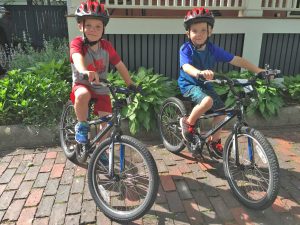
Ashland Farmer’s Market
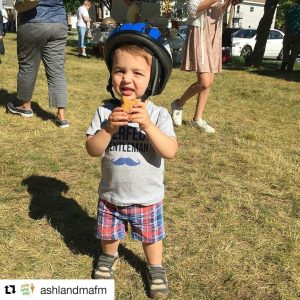
Bike Milton
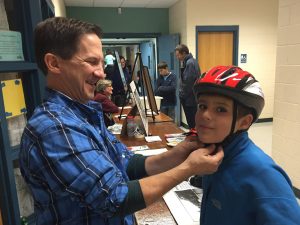
Framingham Earth Day 2016
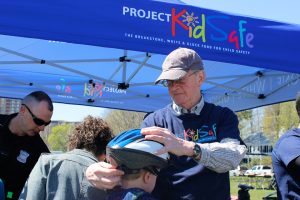
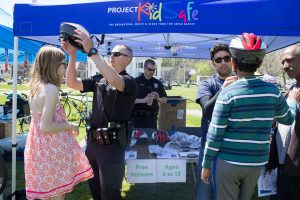
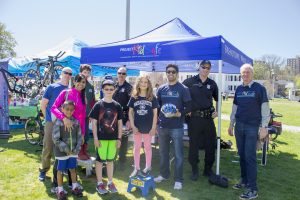
Friends of Lexington Bikeways
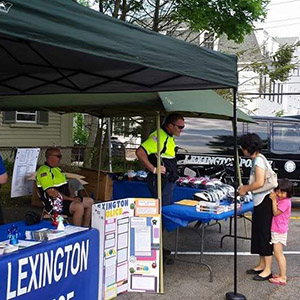
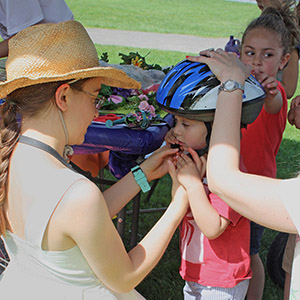
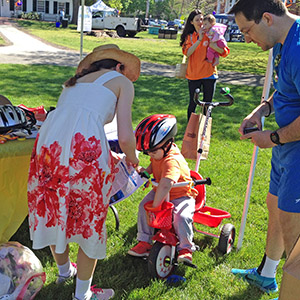
Kiwanis Club of Somerville

Westwood Pedestrian and Bicycle Committee
Westborough Bicycle and Pedestrian Advisory Committee
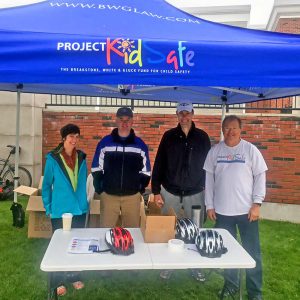

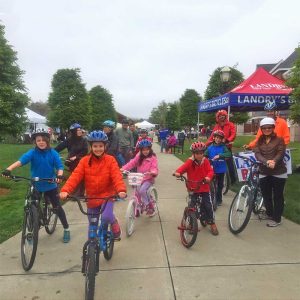
Watertown Bicycle and Pedestrian Committee

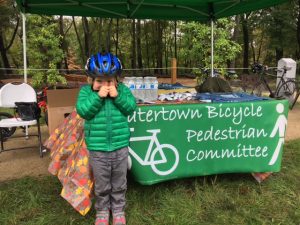
For Parents: Treat Your Child’s Sports Injuries Properly and Take Steps for Prevention
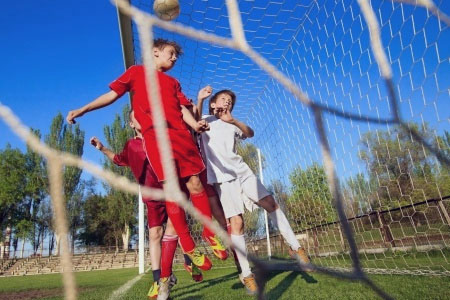 April is National Youth Sports Safety Month, an annual event sponsored by the Stop Sports Injuries organization.
April is National Youth Sports Safety Month, an annual event sponsored by the Stop Sports Injuries organization.
All parents of young athletes fear sports injuries – and there are a large number out there. A 2013 ESPN article reported that more than 21 million children and teens (between ages 6 and 17) are playing organized sports in the U.S.
But a large number of children and teens are also playing, then quitting because of injury. Some 29 percent of boys quit due to a health problem or injury and 27 percent of girls quit for the same reason, according to ESPN’s report.
A few other noteworthy figures:
- Roughly 2.7 million kids under age 20 were treated for sports and recreation injuries between 2001 and 2009.
- There was a 62 percent increase in the number of children under 19 who were treated for traumatic brain injuries (TBIs).
- Football concussions among children age 10 to 14 more than doubled from 2000 to 2010.
Sports programs are a big part of many children’s lives. The experiences will shape them into adulthood and should be enjoyed. But parents, children and coaches must also remember the rules of safety and learn the symptoms of a concussion and the proper ways to treat a head injury.
Symptoms of a concussion may include headaches, dizziness, trouble concentrating, amnesia surrounding the traumatic event, confusion or feeling in a fog, ringing in ears, nausea, vomiting, slurred speech, delayed response to questions and fatigue. Other symptoms may set in later, including memory and concentration problems, personality changes, sleep disturbances, psychological adjustments, depression and problems with taste and smell. When someone shows signs of these symptoms, they should receive immediate medical attention. But anytime a child suffers a concussion or head injury, they should be evaluated by a medical professional regardless of these symptoms.
Here are a few tips for parents:
Listen to Concussion Safety Information. Listen when your child’s coach talks about sports injuries and concussion prevention at the start of the season. In Massachusetts, middle school and high school sports coaches are required to provide training and prevention information related to concussions, under a state law passed in 2010.
Properly Warm Up. Make sure your child properly warms up, even if you drop them off late. Lack of proper warm ups make your child vulnerable to muscle and other injuries.
Football. Make sure your young football player properly warms up, takes proper precautions on those warm late August days to prevent overheating and is educated about symptoms of a concussion. This is important in all sports, but football players are especially vulnerable due to the high contact involved in the game.
Baseball and Softball. Make sure your baseball player properly warms up to protect against arm and shoulder injuries. Then make sure your child pays attention to the coaches and umpires and always focuses on the batter to avoid getting hit. Paying attention is more important than anything else in baseball because balls and bats are always moving quickly. Read more tips on our website.
Soccer. Players are vulnerable to head and other injuries from contact with the other team. Players are often running fast, with their full attention on the soccer ball, neglecting to see other players coming at the ball with just as much force. When someone gets hurt like this, they should step off the playing field and be evaluated by a coach or yourself.
For more safety tips, visit the Stop Sports Injuries website for more tips.
Read More
Amazing Kids Learn Important Cycling Skills at iCan Shine Camp in Arlington
This blog is about a special bicycle camp that is being held in Arlington this week. Breakstone, White & Gluck was happy to donate bike helmets to support the iCan Shine Bike Camp, which fills a very important need and teaches children with disabilities how to ride bicycles. Please read about the camp, its organizer Nina Fischer and all the energetic and skilled instructors and volunteers.
This April school vacation was not a traditional break for two dozen children in Arlington. These children with disabilities spent their time off hard at work, learning how to ride bicycles at the iCan Shine Bike Camp at the Ottoson Middle School.
Children with disabilities do not have as many options for learning to ride and it is especially important in communities near Boston where cycling is so popular, said Nina Fischer, the camp’s organizer. Fischer tried to get her daughter who has cerebral palsy into bike camps for three years (including one as far away as New Jersey) before being approached to organize an iCan Shine Bike Camp locally. iCan Shine is a national non-profit organization which teaches children with disabilities how to ride bicycles. Each year, it hosts nearly 100 camps in 32 states.
Fischer said the children come ready to learn from professional instructors from the iCan Shine national organization. Add in supportive parents and volunteers who agree to guide the children on bikes five days in a row, and the combination all proves very successful.
“This is a skill they have for life,” Fischer said. “Most of these kids don’t have to come back.”
Breakstone, White & Gluck donated the bike helmets for the camp and attorney Marc Breakstone attended and got to meet the young cyclists. He said, “We are so pleased to give helmets to these courageous kids to help make sure that they ride safely.”
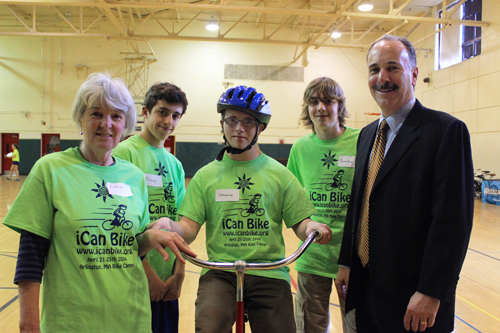
Fischer organized the first Arlington camp last year and her daughter participated. But this year, her daughter decided she had learned enough not to come back.
“That’s what is great,” Fischer said. “Once you have it, you pretty much have it down.”
But she added, “I’m totally hooked. I can’t imagine not doing it. Someone has to do it.”
According to the national organization’s website, about 80 percent of the children can successfully ride bikes independently by the end of the five-day camp. Nationwide, about 35 percent of the participants have Down Syndrome, 35 percent are on the Autism Spectrum and the rest have other diagnosis, Fischer said.
We attended on Tandem Tuesday, when the national instructors gave each child a turn riding on the front of the tandem bike. An instructor sat on the back seat to assess the child’s steering ability and strength.
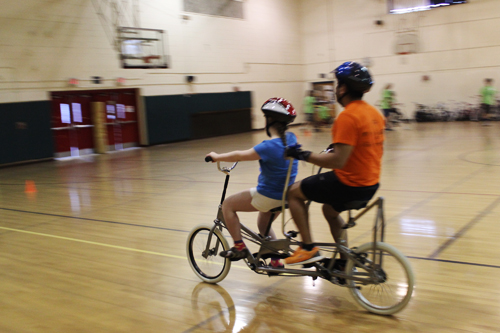
We also got to see the children make their way around the school gym with the specialized adaptive rear wheel equipment. These wheels are developed from research by Dr. Richard Klein at the University of Illinois. They are now made by his company Rainbow Trainers, Inc.
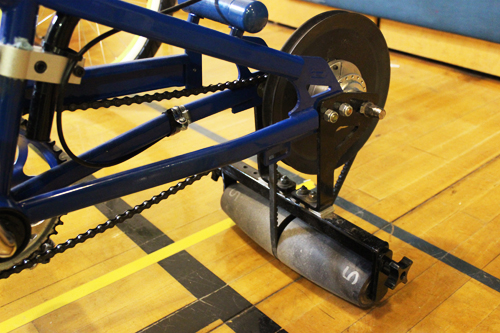
To help the children learn cycling, over the course of a few hours, the iCan Shine instructors change the strength of the bicycle rear tires up to 8 or 10 times. The children are not supposed to know about the change and are encouraged to get a cup of water or take a short break while the change happens.
While using these special rear wheels, children are riding bikes provided by the national iCan Shine organization. These bikes have no brakes. The children rely solely on their own steering and the volunteers to guide them.
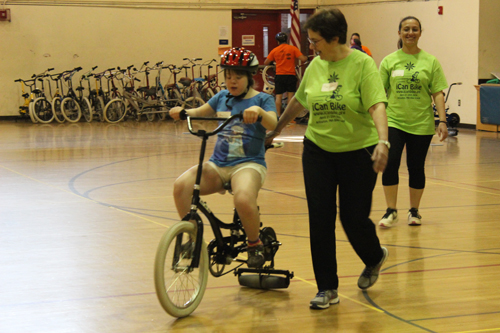
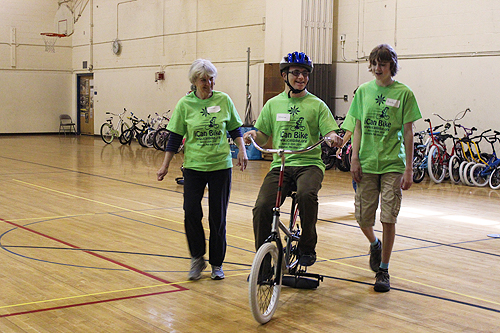
By mid-week, the children progress to two-wheel bikes with brakes. Later in the week, the instructors will start to work with Belmont Wheelworks and the children’s parents on ordering bikes which will best suit each child. They then take the bikes to the gym to practice with the iCan Shine instructors.
“Sometimes that transition is difficult, rocky,” said Andrea Patrick, floor supervisor for the national iCan Shine program. “That’s why we try to do it at camp, where they have learned the skills and it is a safe environment.”
About Breakstone, White & Gluck
Breakstone, White & Gluck, a Boston personal injury law firm, encourages all cyclists to wear bike helmets to reduce the risk of serious head injuries while riding.
According to the Centers for Disease Control and Prevention, bicyclists face a higher risk of crash-related injuries than drivers and occupants of motor vehicles. Children ages 5-14 and young adults ages 15-24 have the highest rates of non-fatal bicycle related injuries and account for 60 percent of all bike-related injuries seen in U.S. hospital emergency rooms.
In 2013, we were proud to donate over 1,000 bike helmets to children in the Boston area. We are donating more helmets this year. To learn more about our bicycle safety outreach, visit www.bwglaw.com/project-kidsafe/. We also invite you to follow our Facebook page.
February Product Recalls: CPSC Urges Consumers to Look for Cedar Chests after Children’s Deaths
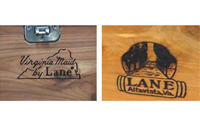 We share some of the February product recalls and notices issued by the Consumer Product Safety Commission (CPSC). Each year, thousands of unsafe products are recalled by the CPSC and other government agencies. The CPSC is now focused on the dangers of wooden chests, issuing a renewed call for the cedar chests which recently trapped two young children in Franklin and warning about other chests which have unsafe latches. Since 1996, the agency is aware of 34 reports of deaths involving wooden storage and toy chests.
We share some of the February product recalls and notices issued by the Consumer Product Safety Commission (CPSC). Each year, thousands of unsafe products are recalled by the CPSC and other government agencies. The CPSC is now focused on the dangers of wooden chests, issuing a renewed call for the cedar chests which recently trapped two young children in Franklin and warning about other chests which have unsafe latches. Since 1996, the agency is aware of 34 reports of deaths involving wooden storage and toy chests.
Protect your family and home by taking a quick glimpse at this month’s list:
Renewed Search for Cedar Chests. On Feb. 27, the CPSC and Lane Home Furniture issued a call for the public to make a renewed search for the company’s cedar chests. On Jan. 12, a young brother and sister from Franklin suffocated to death in one of the chests while playing hide-and-seek. The CPSC investigation determined that the 75-year-old Lane cedar chest closed and automatically latched shut, locking the children inside.
The chest should not have been in use with the defective locks. In 1996, the Lane Company recalled 12 million similar chests which were made between 1912 and 1987. By 1996, six children had suffocated inside the cedar chests. By 2000, a seventh child had suffocated and two others had nearly died. The company has offered new hardware so the chests will no longer automatically latch shut, but reports estimate there are still 6 million chests which need the repair.
Consumers may have one of these chests in their homes even if they do not realize it. Some may have been purchased at second-hand stores or passed down through families. In the Franklin case, the CPSC said the chest was purchased at a local resale store about 13 years ago. Consumers can look for these names inside the cedar chests: “Lane” and “Virginia Maid.”
If you have a chest, you should immediately remove the latch and contact Lane for the replacement hardware. Read the recall notice.
Infantino Recalls Teething Toys Due to Choking Hazard; Sold Exclusively at Target
Infantino has recalled about 191,000 teething toys sold at Target. The toy was the “Go Gaga Squeeze & Teethe Coco the Monkey.” The company received seven reports of infants choking or gagging on the monkey’s tail. No injuries have been reported. The toys were sold at Target stores nationwide and online from December 2012 through January 2014 for $13. Consumers should take these toys away from young children and contact Infantino for a free replacement.
BebeLove Recalls Baby Walkers Due to Fall and Entrapment Hazards
BebeLove Baby Walkers were recalled for not meeting federal safety standards. BebeLove USA recalled about 3,600 models sold on Amazon.com, Overstock.com and small retailers in California, Arizona and Utah from November 2011 through July 2013.
Consumers can are advised to stop using the product and contact BebeLove for a free repair kit.
No injuries have been reported, but the CPSC reports that style number 358 can fit through a standard doorway and is not designed to stop at the edge of a step as required by the federal safety standards. In addition, style number 368 has leg openings which allow a child to slip down to the point their head can become entrapped at the neck. The CPSC said children using these walkers can be seriously injured or killed.
Rowe Fine Furniture
Rowe Fine Furniture recalled about 220 Ottomans due to a risk of suffocation. No injuries were reported, but the company learned a child became trapped in an Ottoman after a sibling closed the lid on the storage compartment. Consumers can contact Rowe for a free replacement lid and a warning label.

